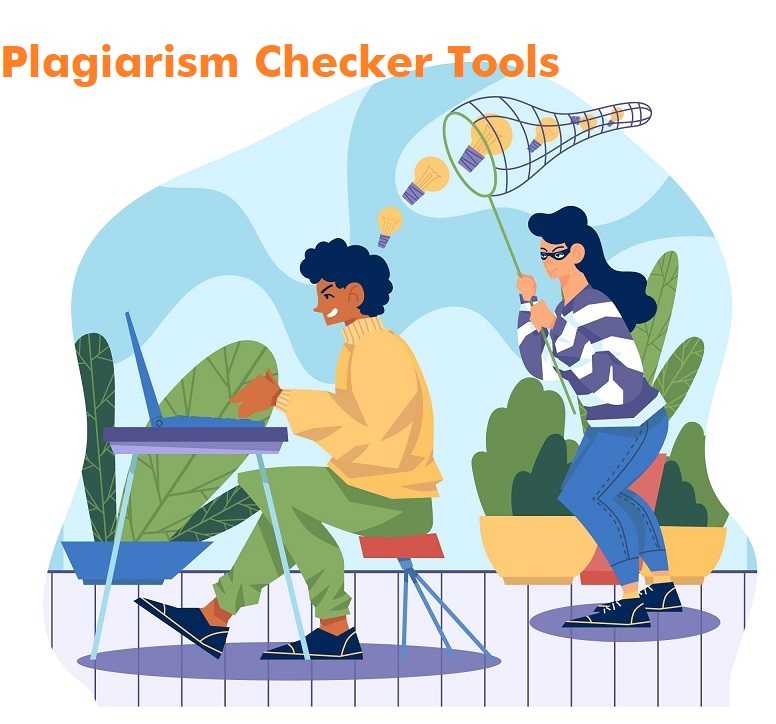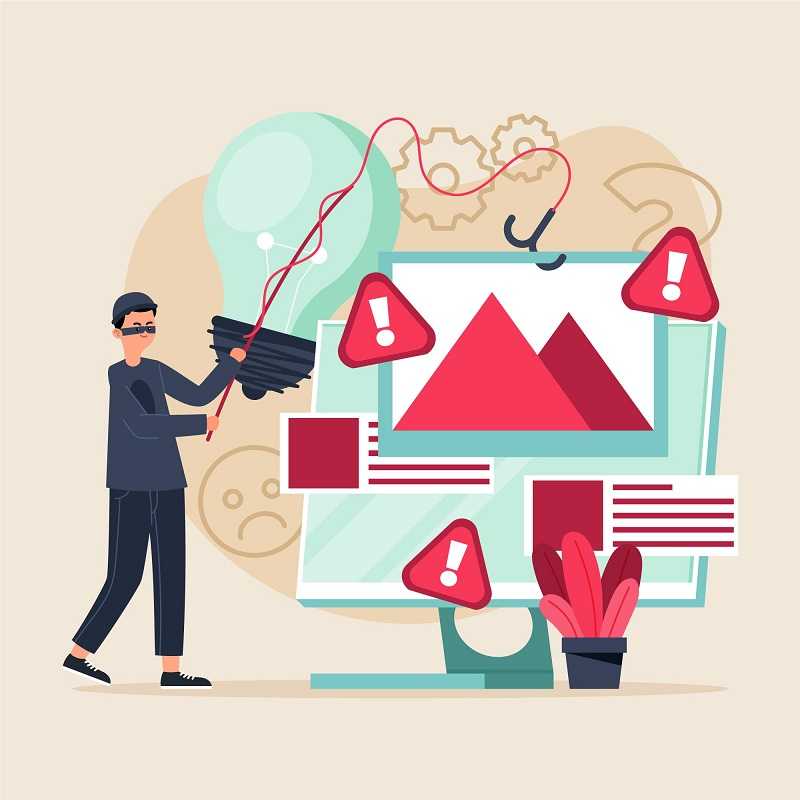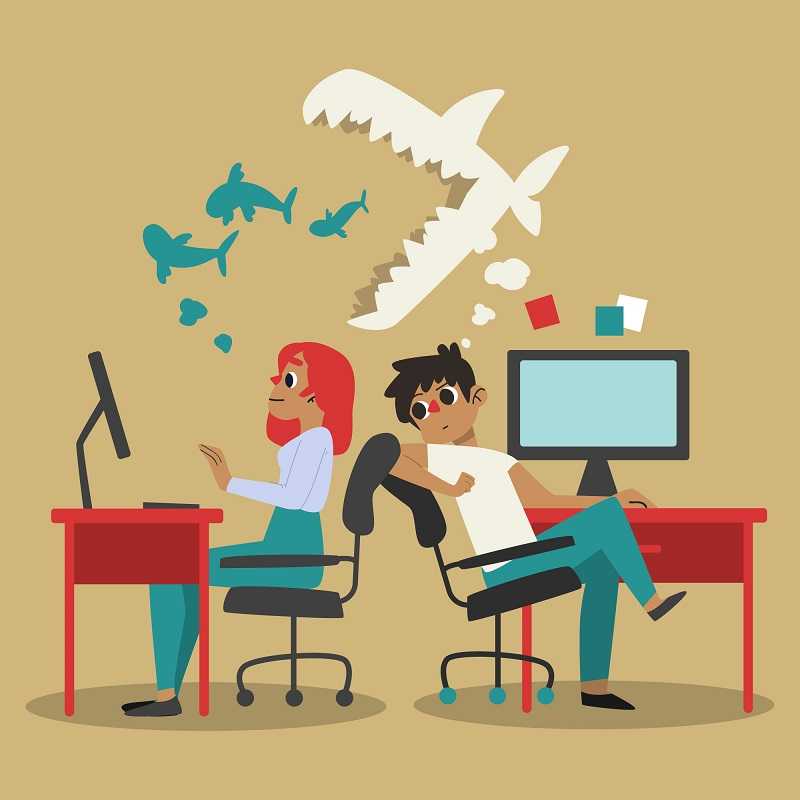10 Best Plagiarism-Checker Tools

Academic dishonesty can lead to poor grades or even expulsion. It is clear that plagiarism should be avoided. It can be difficult to abstain from plagiarism if you don't have a clear definition.
What is Plagiarism?
You may be wondering what is plagiarism?. A simple definition of plagiarism is the act of copying a work or an idea from others without giving the author credit. This definition does not have to be based on intent. Students may use other people's work or ideas without giving credit.

Knowing how to identify plagiarism is only the first step to developing the awareness required to avoid it. It is important to identify it in all its forms. You should also use a subscription-based online plagiarism checker or a free online one as an integral part of your paper-writing process.
Online plagiarism checker
Top-rated plagiarism detection tools for e-learning professionals. They include the following:
1. Dupli Checker
This tool is among the best for detecting plagiarism for free. Some people say it doesn't have an elegant interface, but it does the job well.
2. Copyleaks
This cloud-based authentication platform allows you to track how e-learning content has been used around the Internet.
3. Quillbot
This tool is multipurpose and free from plagiarism. It has been used in more than 140 countries.
4. Plagiarisma
Students, teachers, writers and other members of the literary community can use this simple, multipurpose, easy-to-use plagiarism detection tool.
5. Plagiarism Checker
A user-friendly and completely free plagiarism detection tool that will help you determine if content has been plagiarized.
6. Plagium
A basic but functionally sound plagiarism detection tool that can be used at different levels of search.
7. PlagScan
Individuals and businesses can use this tool to detect plagiarism. It checks text against online content, scientific journals, and user documents.
8. PlagTracker
This is a fast and free tool that detects plagiarism on websites and academic databases. You can copy and paste text or upload files.
9. Quetext
Functional interface and basic layout that checks against the Internet, as well as other databases.
10. Grammarly plagiarism checker
Grammarly's plagiarism detector can detect plagiarism on billions of websites and ProQuest's academic databases. This plagiarism check is free and will let you know if your text has duplicate content.

Consequences of plagiarizing
Plagiarism accusations have ruined the professional and personal reputations of numerous writers, academics, journalists, and creators. Plagiarists can not only have their work stopped or terminated, but also face difficulties in obtaining future work.
One incident of plagiarism, whether it is a memorable one or worse, can completely ruin a person's image. It can also force them to change their careers to avoid being accused of duplication.
Legal Consequences of plagiarism
In certain cases, legal consequences may also be involved.
Plagiarizing copyrighted material can lead to the plagiarist being liable for lost profits or any other losses the copying might have caused to the original creator.
Sometimes, the consequences of duplicating data could be severe. To avoid any of these ramifications, it is a good idea to use plagiarism detector before you submit any content.
Important role of plagiarism checker
You are affected by plagiarism, whether you realize it or not. No matter if you are the creator of the content or the one who uses it, plagiarism can affect us all.
As a content creator (writer, author, researcher, student, freelancer, blogger, social media manager, etc. You should make sure to check your content regularly to ensure that no one is copying it without your permission.
To ensure that your work is not plagiarizing, it is important to run your content through a plagiarism detection software before publishing.
Plagiarism is an act that is academic dishonesty, a violation of journalistic ethics and, most importantly, a publishing crime. You don't want your work to be plagiarized. You could face severe penalties if your work includes plagiarized content.
- Legal actions
- Monetary restitution or fines
- Reputation damage
Other consequences include SEO content duplication penalties, lowered rankings and lost trust.
On the other side of the spectrum is the content user or reader (reader/teacher who vets student work, client of freelance writer, etc.). It is important to examine any submissions or content for plagiarism before you accept or take action.

Who benefits from the plagiarism checker
A plagiarism scan can save you time and help you avoid making mistakes in writing, whether you are a student writing essays, a teacher who grades papers, or a blogger posting daily.
Which languages does the plagiarism checker support?
The plagiarism checker supports many languages: English (French), German (German), Spanish, Portuguese, Italian), Norwegian (Norwegian), Swedish, Danish, Indonesian Malay, Hindi, and Filipino.
Only the document you uploaded is the entity. You can't use a document for plagiarism checks if you delete it.
Technically speaking, if you have published text before, you also need to cite your own work properly in a new publication. It doesn't matter if it's your work or someone else’s. It makes a difference ethically, though.
Author Bio
The Editorial staff includes content researchers from various areas of knowledge. They add a plethora of expertise to the Hubslides Editorial team. They constantly and frequently oversee, produce and evaluate contents that are most ideal to aid impacting knowledge to readers.
Article Comments
No Comments!
At present there are zero comments on this article.
Why not be the first to make a comment?
Similar Articles
Sponsor
Search Articles
Experts Column
Latest Articles
Featured Articles
Most Popular Articles












